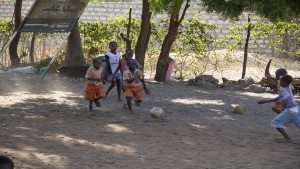 Mala tempora currunt per chi è soggetto a dover “migrare”, cambiare, o peggio, trovare una casa. Ma la situazione diventa ancora più complicata quando il soggetto in questione diventa un minore, persona oggettivamente incapace di badare a se stessa.
Mala tempora currunt per chi è soggetto a dover “migrare”, cambiare, o peggio, trovare una casa. Ma la situazione diventa ancora più complicata quando il soggetto in questione diventa un minore, persona oggettivamente incapace di badare a se stessa.
E’ delle settimane scorse la notizia secondo cui la FIGC sarebbe stata condannata per avere negato il tesseramento di un minore originario del Mali e arrivato in Italia senza genitori. Il ragazzo vive tutt’oggi a Palermo con una coppia di affidatari e la tutela dell’assessore alla cittadinanza sociale del comune.
La prima domanda che la società deve porsi è: come poter vietare ad un bambino la partecipazione ad un momento di aggregazione (come giocare a calcio), fase fondamentale per una corretta ed equilibrata integrazione?
Per una puntuale risposta alla domanda bisogna analizzare approfonditamente la normativa che disciplina il tesseramento dei giocatori minori stranieri.
La norma di riferimento è l’art. 19 del FIFA Regulation on Status and Transfer of Players.
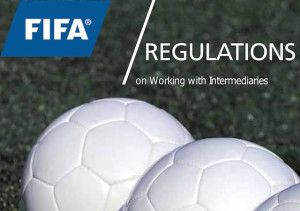 L’articolo 19 prevede quattro commi. Nel primo, si dice che “I trasferimenti internazionali di giocatori sono consentiti solo se il giocatore ha già compiuto 18 anni”. Chiaro e definitivo. Il secondo prevede invece tre eccezioni al comma 1. Il trasferimento di un minorenne può avvenire se:
L’articolo 19 prevede quattro commi. Nel primo, si dice che “I trasferimenti internazionali di giocatori sono consentiti solo se il giocatore ha già compiuto 18 anni”. Chiaro e definitivo. Il secondo prevede invece tre eccezioni al comma 1. Il trasferimento di un minorenne può avvenire se:
A) “I genitori del giocatore si muovono nel Paese in cui ha sede il nuovo club per motivi non legati al calcio”.
B) “Il trasferimento avviene all’interno del territorio dell’Unione europea (UE) o dello Spazio economico europeo (SEE) e il giocatore è di età compresa tra i 16 e 18 anni”. Al giocatore deve inoltre essere garantita un’adeguata formazione calcistica in linea con i più elevati standard nazionali e un livello di istruzione che gli consenta di proseguire la sua vita in altre direzioni qualora la carriera da calciatore dovesse fermarsi prima ancora di iniziare.
C) “Il giocatore vive a non più di 50 Km da un confine nazionale e il club con il quale il giocatore desidera essere tesserato si trova entro i 50 Km da quel confine. La massima distanza tra il domicilio del giocatore e la sede del club non deve essere superiore a 100 Km. In questi casi, il giocatore deve continuare a vivere a casa e i due club coinvolti devono dare il loro esplicito consenso”.
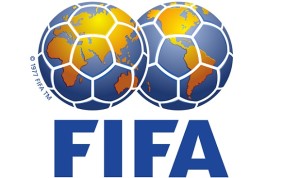 Nel terzo comma si spiega che “le condizioni del presente articolo si applicano inoltre a qualsiasi giocatore che non sia mai stato tesserato in precedenza da un club e non sia cittadino del Paese nel quale egli desidera essere registrato per la prima volta”. Il quarto e ultimo comma definisce le regole d’ingaggio: chi sbaglia, paga. “Ogni trasferimento internazionale, come spiegato nel paragrafo 2, e ogni prima registrazione, come spiegato nel paragrafo 3, sono soggette all’approvazione della sub-commissione nominata dal Comitato per lo status dei calciatori. La domanda di omologazione deve essere presentata dal club che vuole registrare il giocatore. Al club di provenienza deve essere data la possibilità di presentare la sua posizione. L’approvazione della sub-commissione deve precedere qualsiasi richiesta di affiliazione. Ogni violazione a questa disposizione sarà sanzionata dal Comitato disciplinare in accordo con il Codice disciplinare della Fifa. In caso di violazioni, sia il club di formazione del giocatore sia il club nel quale avrebbe giocato sono soggetti a sanzioni”. L’articolo 19 prevede anche un bis, che regolamenta la “registrazione e la segnalazione dei minorenni nelle accademie gestite dai club”.
Nel terzo comma si spiega che “le condizioni del presente articolo si applicano inoltre a qualsiasi giocatore che non sia mai stato tesserato in precedenza da un club e non sia cittadino del Paese nel quale egli desidera essere registrato per la prima volta”. Il quarto e ultimo comma definisce le regole d’ingaggio: chi sbaglia, paga. “Ogni trasferimento internazionale, come spiegato nel paragrafo 2, e ogni prima registrazione, come spiegato nel paragrafo 3, sono soggette all’approvazione della sub-commissione nominata dal Comitato per lo status dei calciatori. La domanda di omologazione deve essere presentata dal club che vuole registrare il giocatore. Al club di provenienza deve essere data la possibilità di presentare la sua posizione. L’approvazione della sub-commissione deve precedere qualsiasi richiesta di affiliazione. Ogni violazione a questa disposizione sarà sanzionata dal Comitato disciplinare in accordo con il Codice disciplinare della Fifa. In caso di violazioni, sia il club di formazione del giocatore sia il club nel quale avrebbe giocato sono soggetti a sanzioni”. L’articolo 19 prevede anche un bis, che regolamenta la “registrazione e la segnalazione dei minorenni nelle accademie gestite dai club”.
La ratio della norma, quindi, risiede nell’evitare operazioni speculative nei confronti dei minori stranieri non accompagnati.
Ma fino a che punto può essere data tale interpretazione alla norma?
In effetti il suddetto regolamento appare lacunoso allorquando, nel prevedere un rigido divieto al tesseramento (creando talvolta anche i presupposti per una discriminazione), non tiene conto di quei istituti esistenti nel nostro paese, quali l’affidamento temporaneo o la tutela temporanea del minore straniero, che limano le possibilità di fenomeni speculativi che la norma stessa vuole vietare.
Bisogna, quindi, contemperare la corretta logica di vietare qualsivoglia comportamento reso a speculare sulla posizione di un minore con il diritto dello stesso a non essere discriminato nel momento in cui mostra interesse ad integrarsi e a far parte di una comunità sportiva.
Giova focalizzare l’attenzione proprio sul regolamento FIFA, al quale le singole federazioni nazionali, in tema di tesseramento, debbono attenersi.
Bisognerebbe infatti predisporre una procedura più snella e limpida affinché un bambino possa serenamente tesserarsi ai soli fini di divertirsi e di non perdere mai quel diritto al sorriso che troppe volte viene negato a coloro che sono più sfortunati di noi.
Articolo a cura di Giuseppe Saeli
English version: Migrant children: could they play football?
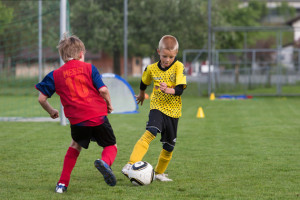 Mala tempora currunt for those who have to “migrate”, change or, worstly, find a new place to live. The situation becomes more complex when the person in question is a child, a person objectively unable to be self sufficient.
Mala tempora currunt for those who have to “migrate”, change or, worstly, find a new place to live. The situation becomes more complex when the person in question is a child, a person objectively unable to be self sufficient.
In the last weeks FIGC has been condemned for the denial of a membership to a child born in Mali and arrived in Italy without his parents.
The child lives today in Palermo with foster parents and under the council member’s legal protection.
The first question that society has to ask itself is: why has a moment of aggregation (like playing football) necessary for a corrent and harmonizing integration phase been denied to the child?
For a precise answer, it is necessary to analyze the regulations about the membership of young foreign football players.
The legal standard to refer to is the article 19 of the FIFA Regulation on Status and Transfer of Players.
Article 19: Protection of minors
- International transfers of players are only permitted if the player is over the age of 18.
- The following three exceptions to this rule apply:
- a) The player’s parents move to the country in which the new club is located for reasons not linked to football;
- b) The transfer takes place within the territory of the European Union (EU) or European Economic Area (EEA) and the player is aged between 16 and 18. In this case, the new club must fulfil the following minimum obligations:
- It shall provide the player with an adequate football education and/or training in line with the highest national standards.
- It shall guarantee the player an academic and/or school and/or vocational education and/or training, in addition to his football education and/or training, which will allow the player to pursue a career other than football should he cease playing professional football.
- It shall make all necessary arrangements to ensure that the player is looked after in the best possible way (optimum living standards with a host family or in club accommodation, appointment of a mentor at the club, etc.).
- It shall, on registration of such a player, provide the relevant association with proof that it is complying with the aforementioned obligations;
- c) The player lives no further than 50km from a national border and the club with which the player wishes to be registered in the neighbouring association is also within 50km of that border. The maximum distance between the player’s domicile and the club’s headquarters shall be 100km. In such cases, the player must continue to live at home and the two associations concerned must give their explicit consent.
- The conditions of this article shall also apply to any player who has never previously been registered with a club and is not a national of the country in which he wishes to be registered for the first time.
- Each association shall ensure the respect of this provision by its clubs.
- The Players’ Status Committee shall be competent to decide on any dispute arising in relation to these matters and shall impose appropriate sanctions in the event of violations of this provision.
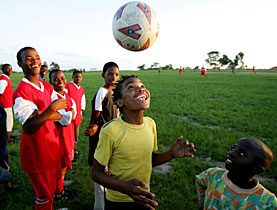 The third clause explains that “the condition of the current article applies furthermore to any player that has not been registered for a club and that is not a citizen of the Country in which he wants to be register to for the first time”. The fourth and fifth clause define the rule of the hiring/employment: you play, you pay. Each international transfer, as it is explained in the paragraph 2, and each first registration, as it is explained in the paragraph 3, has to be approved by the sub – commission named by the Committee for the football players status. The question of validation/omologation has to be presented by the club that want to register the player. A chance to display the position has to be done to the previous club. The acceptance of the sub – commission has to come before any affiliation request. Any violation to the following regulation will be punished by the disciplinary committee in agreement with the Fifa disciplinary Code. In case of infringiments, both the training club and the ipothetic club where the player could have played, are subject to penalities.
The third clause explains that “the condition of the current article applies furthermore to any player that has not been registered for a club and that is not a citizen of the Country in which he wants to be register to for the first time”. The fourth and fifth clause define the rule of the hiring/employment: you play, you pay. Each international transfer, as it is explained in the paragraph 2, and each first registration, as it is explained in the paragraph 3, has to be approved by the sub – commission named by the Committee for the football players status. The question of validation/omologation has to be presented by the club that want to register the player. A chance to display the position has to be done to the previous club. The acceptance of the sub – commission has to come before any affiliation request. Any violation to the following regulation will be punished by the disciplinary committee in agreement with the Fifa disciplinary Code. In case of infringiments, both the training club and the ipothetic club where the player could have played, are subject to penalities.
Article 19 bis, finally, is about the “Registration and the report of the children in the academy managed by clubs”.
The ratio legis is to avoid the speculative operations towards unaccompanied foreign children.
Until when could this interpretation be interpreted in this way?
Indeed the above-mentioned regulation appears incomplete when, predicting a strict denial to the membership, it does not take into consideration those institutions existing in our country such as the temporary foster care of a foreign child that smooth the chance of speculative phenomenons that the regulation wants to forbid.
It is necessary adapt the correct reason to forbid any behavior act to take advantage of a child’s position with the right not to be discriminated when he has the interest to be integrated and to be part of a sport community.
Attention has to be made to the FIFA regulation to which the single national federation has to conform to.
An easier procedure has to be done so that a child could peacefully be a member of a club only to have fun.
Written by Giuseppe Saeli
12/01/2016










